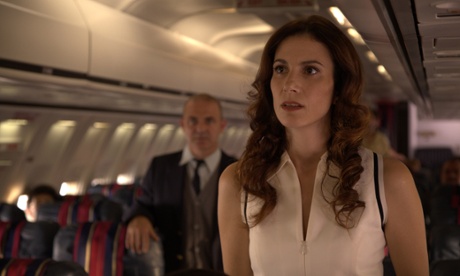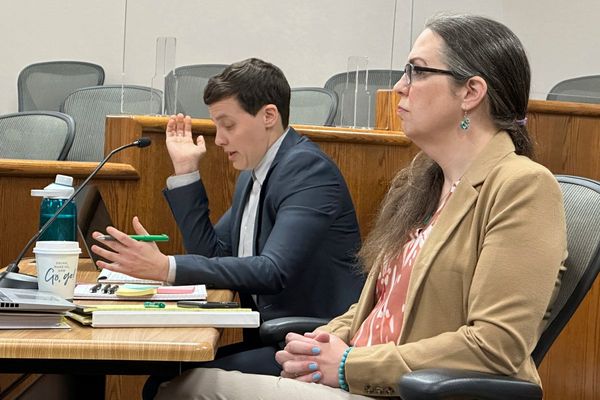
The icon biopic is a tricky genre to nail: unexamined reverence leads to inertia, but so can over-exhaustive academic scrutiny. Ava DuVernay’s Martin Luther King portrait, Selma (Fox, 12), however, gets the balance vibrantly, vitally right. Though it’s unabashedly in thrall to the slain civil rights leader, it avoids hagiography via its rigorous focus on the intricacies of democratic process. It’s a tribute at once intimate and fiercely public-minded. King’s personality and philosophies alike are portrayed through the prism of one specific, strategically crucial career battle: the 1965 marches for voting rights in the eponymous Alabama town and the heated friction they inspired both within and against his camp.
Not for DuVernay the history-book cramming of the Attenborough-style biopic. Her sober but sensuous style, already proved in smaller-scale domestic dramas, identifies King through gesture and expression, and the broader outcome of his political manoeuvring – all the way to America’s latterday flare-ups – via pointed implication. She also draws the performance of a career from David Oyelowo, who conveys King’s oratorical skill and more private powers of persuasion with fire-bellied conviction; that neither he nor his director was Oscar-nominated is a slight that many will inadvertently correct in their memories.
Taking a softer approach to the subject of civil liberties, Ira Sachs’s gentle, genial gay marital drama Love Is Strange (Altitude, 15) gives both Alfred Molina and John Lithgow their most rewarding roles in several years as a retirement-age married couple forced out of their Manhattan apartment by a combination of prejudice and real-estate ruthlessness. Their ensuing struggle is observed with Sachs’s customary sensitivity; the performances (particularly Marisa Tomei’s, as Lithgow’s put-upon new housemate) brim with warmth and good humour. Yet the drama is so low-temperature that viewers may be tempted to put the couple’s predicament, despite the social injustice from which it stems, in the first world problems bracket.
On the distinctly less humane end of the scale, Liam Neeson is out for grisly retribution, again, after his ex-wife is murdered – for the first time, though you’d be forgiven for thinking otherwise – in Taken 3 (Fox, 15). There’s little to be said about this dutiful exercise in grunting sadism beyond the likelihood that if you enjoyed the first two, well, you may still notice this one’s deficiencies in craft and plotting. Certainly, there are more inspired forms of revenge on offer in Wild Tales (Artificial Eye, 15), Argentinian director Damián Szifrón’s zappily entertaining, Oscar-nominated compendium of six short meditations on the dish best served cold. In the first (and punchiest) of them, a planeful of passengers grimly discover they’re linked by one antagonist scorned; another vignette riotously takes road rage to severe extremes. Not all the chapters sustain this level of clarity and hilarity, and Szifrón’s infusion of political subtext into the nasty high jinks still doesn’t give the whole a great deal of weight. But it’s vinegary fun.
The week’s standout documentary, Nadav Schirman’s The Green Prince (Artificial Eye, 15), is an engrossing factual thriller fashioned from the same fractious subject matter – the cloak-and-dagger dealings of Israel’s Shin Bet security service – that has already propelled such recent films as The Gatekeepers, Omar and Bethlehem, though it doesn’t feel at all redundant. The most welcome rerelease of recent weeks, meanwhile, is a gleaming new restoration of John Schlesinger’s glorious Far From the Madding Crowd (1967), which dwarfs Thomas Vinterberg’s respectable new adaptation in every formal and emotional sense; Nicolas Roeg’s widescreen photography has never looked more lustrous on your TV screen.
On the streaming front, there are few cheaper essentials to be found online than Vittorio De Sica’s eternally heart-crushing Umberto D, currently going for a mere £2 on Curzon Home Cinema. Every bit as honest and observant a pinnacle of the Italian neorealist movement as de Sica’s more frequently screened Bicycle Thieves, this study of a retired civil servant facing economic ruin with only his loyal dog for company seems no less potent or impassioned today than it did 60-odd years ago; Love Is Strange seems an even milder protest by comparison.








